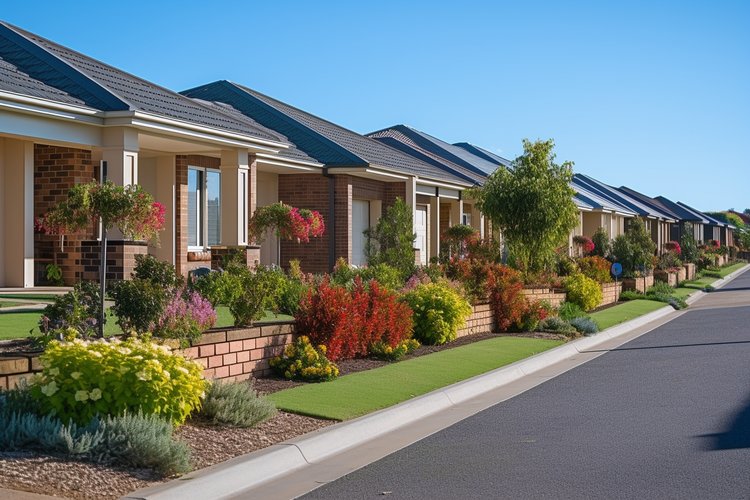Legal steps for expatriate tenants and visa linked rental considerations
Understanding legal steps and visa-related implications is essential for expatriate tenants considering rentals in Dubai. This article outlines the tenancy process, documentation, visa-linked rental considerations, and practical tips on utilities, negotiation, and relocation to help expats move and settle with fewer surprises.

Relocating to Dubai involves both practical and legal preparation for expatriate tenants. Before signing any tenancy agreement, it is important to understand how visa status, landlord obligations, and local regulations interact. This opening section outlines the core responsibilities for both tenants and landlords and highlights the documentation typically required to validate identity, proof of employment, and visa status. Familiarity with these elements reduces delays in registration, utilities setup, and avoiding disputes later in the tenancy.
What are key rentals and leasing steps for expats?
When searching for rentals, begin with verified listings and a clear budget that includes deposit, agency fees, and Ejari registration costs. Leasing generally starts with viewing, negotiating terms, and receiving a draft tenancy contract. Tenancy agreements should specify rent amount, payment schedule, security deposit, and maintenance responsibilities. Agents often facilitate the process but confirm any fees are transparent. After signing, both parties must register the contract with the Dubai Land Department’s Ejari system where applicable; this registration helps if visa-linked requirements or disputes arise. Keep copies of all receipts and communications in case of future queries.
How do neighborhoods and relocation choices affect tenancy?
Choosing the right neighborhood influences daily commute times, amenities access, and rental affordability. Research neighborhoods based on proximity to work, public transport, schools, and local services in your area. Consider whether you prefer coliving or serviced apartment setups for shorter relocation periods, or a longer-term flat if you need space and dedicated parking. Neighborhood safety, available amenities, and community rules can affect lifestyle and long-term satisfaction. Visit at different times of day where possible and ask current residents about noise, traffic, and any hidden charges related to building services or utilities.
What should expats know about tenancy rights and visa links?
Visa-linked rental considerations can include using the tenancy contract as part of visa sponsorship or proof of residence. Many residency processes require a valid tenancy contract or accommodation declaration; ensure your landlord consents to any documentation use for visa purposes. Understand eviction procedures, notice periods, and your rights regarding repairs and maintenance. If your visa status changes, review the contract’s clauses on subletting or early termination. For employment-linked visas, confirm with your sponsor or employer whether the lease must meet certain standards or be registered in a particular manner as part of immigration requirements.
How are utilities, amenities, and coliving options handled?
Setting up utilities—electricity, water, internet—and accessing building amenities often requires identity documents, the signed tenancy contract, and sometimes Ejari registration. Determine who is responsible for utility payments in the contract and whether amenities such as gym access, pool maintenance, or parking are included. Coliving and serviced apartments may bundle utilities and regular cleaning into one fee, simplifying bills but sometimes increasing monthly costs. When comparing options, ask for recent utility bills or estimates and verify whether provision of certain services is contractual or managed informally by building management.
What negotiation, inspection, and efficiency tips reduce risk?
Effective negotiation begins with market research on comparable rentals in similar neighborhoods. Use inspection checklists to document the property’s condition before moving in—note any damage, appliance condition, and meter readings. Negotiate reasonable clauses for repairs, response times, and exit conditions. For moving efficiency, arrange parking permits and elevator booking if needed, and confirm building access times to reduce delays. Maintaining a clear inventory and photographs can prevent disputes over security deposits. Prioritize safety items like functioning locks, smoke detectors, and secure parking when assessing a property.
How to manage moving logistics, parking, and safety concerns?
Plan moving logistics with professional movers who understand local regulations and parking requirements in residential areas. Reserve parking or loading zones ahead of time and obtain necessary permits from building management. Check building policies on moving hours and elevator use to avoid fines. For safety, verify that common areas are well-lit and that the building has clear emergency exits. If you rely on public transport or driving, evaluate parking availability and costs as part of overall rental efficiency. Keep emergency contacts for local services and your landlord or property manager easily accessible.
In summary, expatriate tenants should approach rentals in Dubai with a checklist covering legal documentation, Ejari registration where applicable, clear lease terms tied to visa needs, and practical checks on utilities, amenities, and neighborhood suitability. Careful negotiation, thorough inspections, and attention to moving and safety logistics help minimize disputes and ensure a smoother relocation experience.






